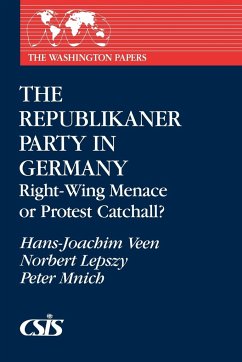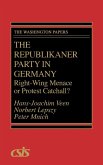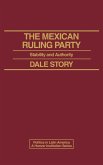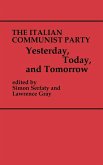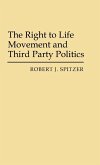This volume presents a broad survey of the Republikaner Party, its program and ideology, its organization, and the composition of its voters and sympathizers. The authors maintain that any analysis of the Republikaners must distinguish between the party as represented by its platform and party officials, and the party as seen by its voters. Republikaners draw potential voters from two very differently motivated groups: (1) a small, ideologically oriented segment dominated by right-wing conservative and right-fringe extremist attitudes, and (2) a larger, flucating pool of sympathizers less committed to the REP and primarily concerned with economic and social issues. Until recently, the Republikaners were mainly able to exploit narrowly focused, pent-up resentments. The foreigner problem is at the center of Republikaners' propaganda and serves as a catalyst that adroitly combines numerous related social problems such as housing shortage, unemployment, and the widespread fear of being shunted aside by interlopers. Although the Republikaners still lack the social foundation and ideological consensus necessary to build a stable core constituency, the organization serves as a vehicle for diverse protest. The authors warn that the Republikaners potentially comprise a base for organizing a party on the far right of the German political spectrum.

